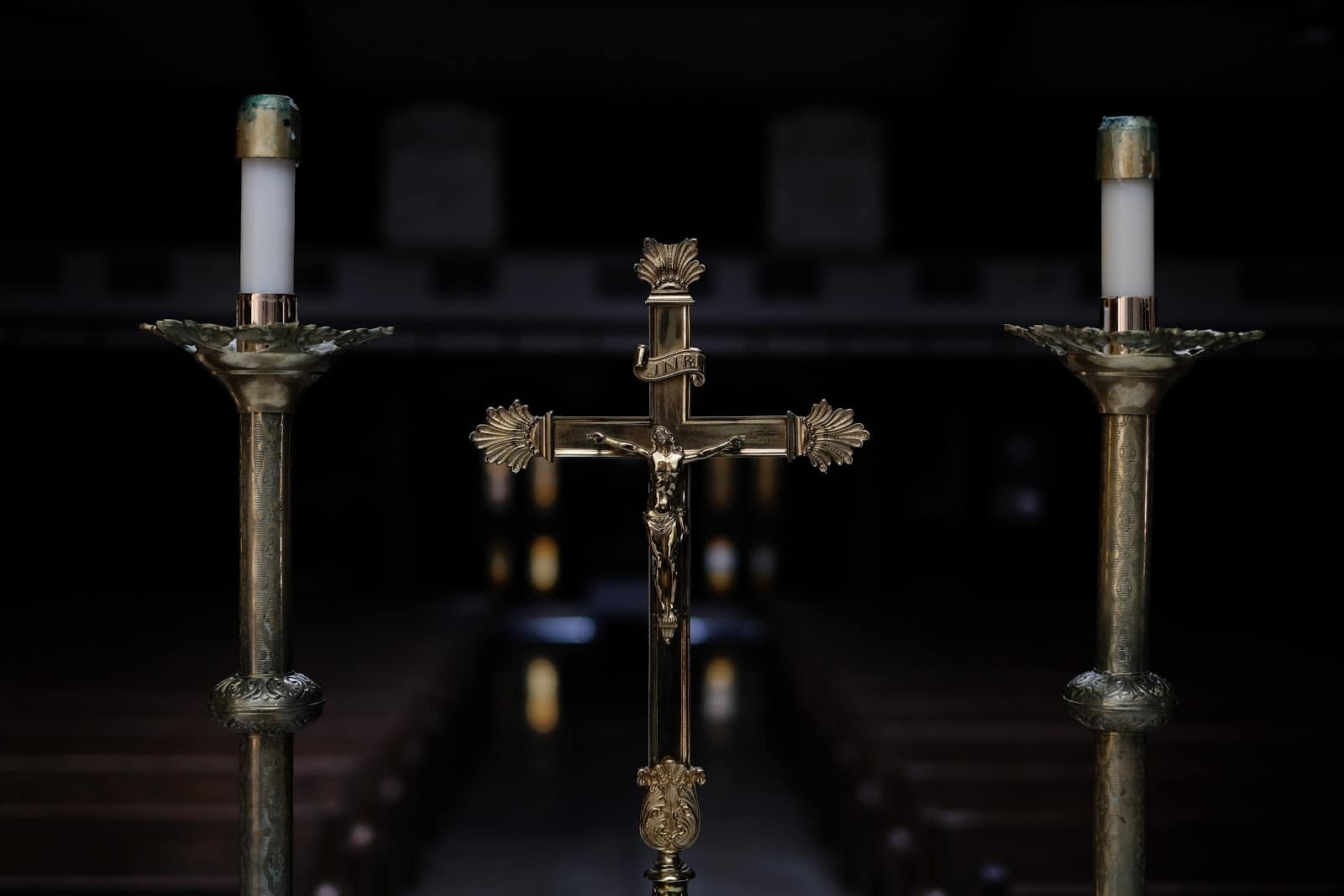When it was released, I kept Bon Iver’s new song “Faith” on repeat. The optimistic strumming of an acoustic guitar and an angelic choir wrap the song in light, celebration, authenticity, and a sense of the sacred. For days, I sang along presuming it spoke truth. I even tried to get other Jesuits in my community to love it, too. Then, one of them denied its greatness and sparked doubt in my mind. The following day, the lyrics finally hit me.
Bon Iver’s song “Faith” begins with one word: “shattered.” The implication is that we’re oppressed by what “faith” requires and are now realizing all of “the wonderful things I’ve learned to waste” and that “I shouldn’t hide.” The first verse ends claiming that “there is no design / you have to decide.”
This is what he says we have to decide: “Am I dependent in what I’m defending? And do we get to hold what faith provides?” Assuming the answer, Bon Iver offers himself as refuge and relief from such doubts: “fold your hands into mine.” He sings that “faith declines,” but admits “I’m not all out of mine.” It’s not clear if he’s trying to comfort the listener or confess that he can’t rid of his own unwanted faith.
If Bon Iver means all of this, then this isn’t just a song. It’s more like a hymn. Hymns are sung in churches for two reasons: right worship and the communal confession of faith. The majority of Catholic hymns were written by theologians to teach and defend against other hymns spreading error and heresy. Music is powerful. It has a universal reach; everyone can hear it and be drawn by its beauty. This means the words have a great responsibility to be tried and true.
What is Bon Iver’s hymn about? The gospel of self-sufficiency. “Got all that I need / It’s time to be brave” and “So what if I lose, I’m satisfied.” The listener is being urged to accept the self as one’s sole reality. While the music is great, the song “Faith” may very well be a work of evangelization to the anti-religion movement.
Where’s this message coming from? I have a hunch it’s not unlike the mistaken postmodern understanding of the phrase: “Faith Seeking Understanding.” Today it largely implies a seemingly liberating idea of being brave enough to ask the tough questions, discovering what I really believe instead of embracing what was passed down to me or even redefining any spiritual reality according to my truth.
This isn’t what St. Anselm of Canterbury meant when he, a Catholic bishop in the 10th century, took as his motto: “fides quaerens intellectum,” faith seeking understanding. For this die-hard saint-philosopher, faith is to love God and to be driven to live according to His Will. For that faith to seek understanding, then, means finding out all the ways to love God. It’s about God’s will and loving Him. When it’s all about that, we become oriented to receiving the fullness of Life only He can give.
Despite this, people feel invigorated and liberated when they rebel from traditional religion. Many are convinced that they have no need to make a decision about Jesus Christ. They don’t need an institution to live and find community in. They alone get to determine the meaning of their life, worth, and freedom. Their desires may be good, but they’ve come to worship the mistaken postmodern idea of “faith seeking understanding” to an extreme. Now faith has left the picture and our creed is only to defend our personal experience and redefine everything according to our limited understanding.
By all accounts, it’s great to learn why one believes what the Church teaches and does, but it’s a far greater adventure to accept it and do it. When we encounter Jesus Christ in the Church and come alive, then we have the freedom to make a good decision. We shouldn’t make a decision when a beautiful and enticing word reaches us through a song proclaiming “faith declines” and “you have all that you need.” If we had all we needed, the song wouldn’t have tugged at our great thirst for faith in the first place. It should be sung by all the modern minds who have come alive in the Catholic Church that now it is time for understanding to seek faith.
—
Image courtesy of Unsplash user Josh Applegate


